- Bernard Preston homepage
- Permaculture
Backyard permaculture
Backyard permaculture is about designing a productive ecosystem that is diverse and sustainable. It is not an exaggeration to say it concerns saving the planet. Call it your small contribution to making sure that your grandchildren inherit a habitable world if you will.
But at our green home it is about providing food, water and energy for the family in a way that is compatible with nature. Choosing better health for both ourselves and the planet is central to our philosophy; we are doing our level best to create a cyan zone.
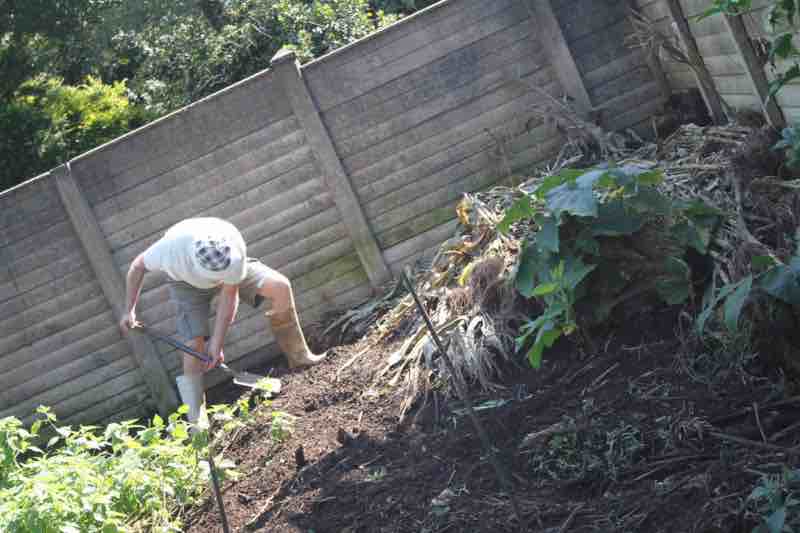
Backyard permaculture was last updated by Bernard Preston on 9rd May, 2024.
So much of agriculture, energy generation and water reticulation today can only be described as toxic. They are destroying the planet, bringing about dramatic climate-change and making us sick. It is no coincidence that the pandemic, really a lung infection initially thrived in those parts of the world where air pollution was at its very worst.
Until each of us in his or her small way starts to take responsibility for our own lives, this destruction of the environment and our bodies will continue unabated.
Malignancies and the multitude of autoimmune diseases are just the tip of the iceberg; they are the small consequences of the gross neglect by human-beings of our home, Mother Earth.
Will you join me in trying to make a difference in your own backyard?
It will take time and energy. It comes at a cost, mainly the sweat from your brow; I want you to know that up front. But the alternative is too ghastly to contemplate; a dying planet. And it is already happening.
There is perhaps no better way than to start recycling your garbage. It is a relatively simple task which may take you five-minutes a day; but if we all did it, it would make a profound difference.
Many of the important things in life have simplicity at heart. Just separating out the paper, cans and plastic from the other junk would make a huge difference; add to that the glass bottles.
Is that too much to ask? Well, accept then that your grandchildren may one day curse our generation for destroying their home; the late, once great planet Earth.
I do not think that is an exaggeration either. Did you know that within a few short years there will be more plastic in the sea than fish? And then we eat it. It is even in our salt.
Australian family Eliades has an altogether different concept; I love what they have written at deep green permaculture. Enjoying what others have done will inspire you to make a start.
Backyard permaculture
Backyard permaculture is a colossal subject. You may end up going the whole nine-yards but it will probably have tiny beginnings. Plan big but start small is a good way to think about it. Nowhere is this more true than when building a solar generator; otherwise you will have to upgrade your inverter at great and unnecessary expense.
The place to start is where your heart is. It could be something as small as deciding to iron your clothes only for high and holy days.
That alone would reduce the world's energy consumption significantly if we all did it; and produce less greenhouse-gases.
As a DC I would point out it would also stress your back a great deal less too; standing in one place for a prolonged period is not easy for the body.
Or perhaps you might decide on making a compost pile, instead of sending all your garden and kitchen refuse to the dump.
But this backyard permaculture page at Bernard Preston's site is not primarily about sorting garbage and reducing your energy consumption; it is rather more than that but had small beginnings.
I will tell you about my vision for a sustainable future; yours will probably look very different.
At the heart of any backyard garden is the need for a plentiful supply of water. To contribute to sustaining your own natural ecosystem, you need to look beyond using your local utility. In the first place distant dams are very expensive; they are wasteful with huge losses from evaporation and in the reticulation. Is the irrigation of your vegetables and fruit trees needlessly and perhaps detrimentally chlorinated?
These massive dams are in any case reaching the end of their lives; very few new ones are being planned. Read more at alternative types of water storage.
But onto your roof depending on where you live, there is probably a plentiful supply of relatively clean water falling for much of the year. All that is needed is to collect and store it in a tank or reservoir; and find a way to get it to your home and garden.
Urban agriculture is what we are promoting and it needs water to be a success for a greener planet; and something more than just fresh, unsprayed food from your garden. It will be free from chlorine too but that is a ticklish subject which we cover elsewhere.
It will also be free of micro-plastic particles. Do you know that we consume about 5g per week from both reticulated and bottled water? That is the size of a credit card. Deposited in the lining of the arterial system they are becoming a major aggravating factor in cardiovascular disease.
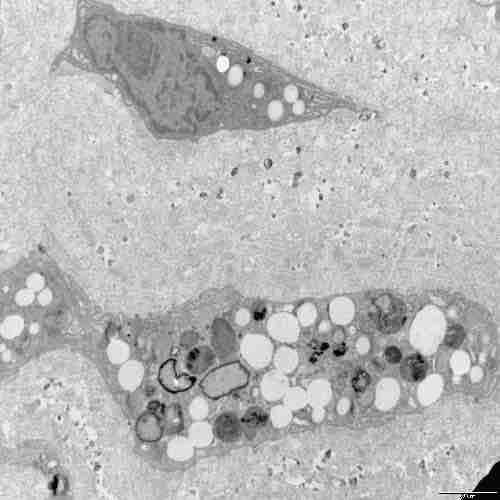 Plastic particles in arterial plaque
Plastic particles in arterial plaqueRainwater harvesting model
Harvesting rainwater provides the foundation on which Bernard Preston's backyard permaculture is built.
Without water gardening is impossible.
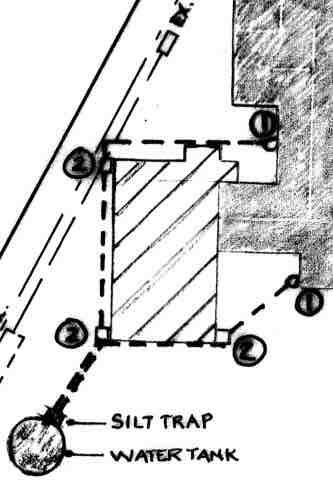
In our home water is collected from five down-pipes, transferred via 110 UG sewerage conduit to a silt-trap which then overflows into an underground 27,000 litre reservoir; it must have a roof.
A pump is used to bring that rainwater to the home and garden. It provides for all of our needs; we drink it too.
You might say that was no small beginning. No, it was not but in all fairness we already had a large garden, which was the real start of our backyard permaculture; but it was dying of thirst. We now have an unlimited supply of lovely, soft unchlorinated water for all of our needs.
It has no microplastic particles nor many other toxic chemicals either; they are too small to be filtered out by the utility. Just the sugar-free sweeteners that are peed out are now in your reticulated water, causing havoc with the friendly bacteria in the gut.
From there we could extend our backyard permaculture to building compost piles and growing a multitude of vegetables, salads and fruit-trees. I could go on at length.
We could feed an army but much is given away to friends, patients and at our church. Lettuce, spinach and beets abound; beans, corn and potatoes too. But everything is dependent on that stored rainwater.
From there we moved into keeping bees, building a chicken tractor and a worm farm; it is all about pollination of our veggies, providing compost rich in manure for the plants. The surplus creepy-crawlies feed the chooks.
You could start your backyard permaculture with any of these projects; or others that you may be passionate about. Planting a lemon or lime tree would be a great beginning for anybody wanting to improve both their strength and the environment.
Water scarcity in the world is set to increase and the quality drop; but it is up to the individual now to become more resourceful and resilient.
Solar generator
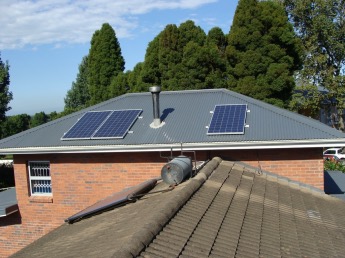
The solar generator is certainly the largest and most complex of our backyard permaculture projects. It took a lot of planning, it is a work in progress with three more large west-facing PV panels going up this week to provide an extra 930 watts of sunshine energy to our home; here they are.
It was an expensive project but we have plentiful electrical energy when the utility is load-shedding which is frequent in South Africa; yesterday the power went off three times.
And we now use no mains electricity, so our solar generator is paying for itself by providing a steady supply of clean power; and protecting us from dreaded utility surges. We remain connected to the grid, should the need arise but have used only 42 kWh in 4 years; for hot showers when prolonged misty weather covers the village in spring.
It also drives the pump that supplies water to our home and garden. Currently it is energizing the swimming pool chlorinator and I can hear the good wife vacuuming. As soon as she is done, I will put on the kettle for tea and take a hot shower; all supplied and heated from the heavens. We even have an E-car totally charged from the sun.
Our philosophy is to work with rather than against nature. Collect the sunshine and rainwater falling on your roof. Use them to supply your home and garden. The hardware is paid off in 5 to 7 years; thereafter everything is free.
Soil nutrients
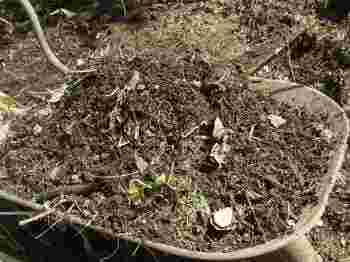
Improving the soil nutrients is a central part of backyard permaculture; without the nitrogen, inorganic minerals and mulch we cannot expect to enjoy vigorous vegetables. Just look at these green beans growing in what was once a compost pile.
Interestingly getting your garden soil ready with plenty of compost captures carbon-dioxide from the atmosphere, reducing greenhouse gases.
Saving kitchen waste in your compost gardening bins is so important. Do not send it to the dump; it's a valuable resource.
Few soil nutrients are more important than those from nitrogen fixation bacteria. The cling to the roots of legumes, enriching the soil.
Then there is the wonder of worm farms, making a compost pile and the use of this chicken tractor design to provide organic fertiliser in the garden.
Newsletter
Our newsletter is entitled "create a cyan zone" at your home, preserving both yourself and Mother Earth for future generations; and the family too, of course. We promise not to spam you with daily emails promoting various products. You may get an occasional nudge to buy one of my books.
Here are the back issues.
- Lifestyle and ideal body weight
- What are ultra-processed foods?
- Investing in long-term health
- Diseases from plastic exposure
- Intensive lifestyle management for obesity has limited value
- A world largely devoid of Parkinson's Disease
- The impact of friendly bacteria in the tum on the prevention of cancer
- There's a hole in the bucket
- Everyone is talking about weight loss drugs
- Pull the sweet tooth
- If you suffer from heartburn plant a susu
- Refined maize meal and stunting
- Should agriculture and industry get priority for water and electricity?
- Nature is calling
- Mill your own flour
- Bake your own sourdough bread
- Microplastics from our water
- Alternative types of water storage
- Wear your clothes out
- Comfort foods
- Create a bee-friendly environment
- Go to bed slightly hungry
- Keep bees
- Blue zone folk are religious
- Reduce plastic waste
- Family is important
- What can go in compost?
- Grow broad beans for longevity
- Harvest and store sunshine
- Blue zone exercise
- Harvest and store your rainwater
- Create a cyan zone at your home
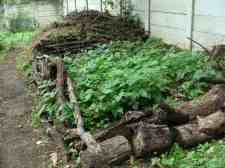
Finally
there is a massive amount of fruit, vegetables and salads to grace our
home, all unsprayed with toxic pesticides; little or no inorganic fertilizers. What's potting in the garden is a favourite page; that is the best place to get as many of the top 7 functional foods as possible.
It is all a part of what I call the green journey; in essence it is a spiritual voyage into the inner self. It all begins with a profound disgust of how we are destroying Creation, with the nagging feeling that, no matter how hard we try we are leaving behind a broken planet for our children; will they curse our very graves? Can we make a difference? Yes, we can.
In actual fact we prefer pole beans to the bush variety above; they are far more prolific and are much easier to reap. Building a vegetable garden trellis at zero cost is a piece of cake. When you cannot get rid of invasive aliens that are a bother, instead make use of them. Our bamboo patch is an unexpected blessing.
Choice foods
Growing your own choice foods is the bedrock of the backyard permaculture philosophy. If you want to avoid getting nasty tumours and one of the many autoimmune diseases, start to think about food rich in vitamins and minerals, phytochemicals and natural fibre; like orange juice bioflavonoids, for example.
You will find that these functional foods taste so good too; and they promote wellness and prevent disease. Could you make half an hour once a month to make the probiotic in this homemade sauerkraut recipe?
Homemade probiotics cured my fifteen year bellyache from a heliobacter infection that refused to respond to antibiotics. Even better is that a happy colon means far less likelihood of getting one of the nasty neurodegenerative diseases like Parkinson's.
One small example is that most Western plates have at best 50% of the recommended choline; a deficiency causes a multitude of serious diseases, including birth defects. Our backyard permaculture solution is to grow plenty of greens and keep our own hens.
Free range eggs are the richest of the choline food sources.
It is almost impossible to purchase unheated, unprocessed honey today; keeping ten beehives in our garden is our solution to the adulteration of nature's best sweetener. Even so we limit it to about three teaspoons a day. It has helped us overcome our sugar addiction; we take almost zero.
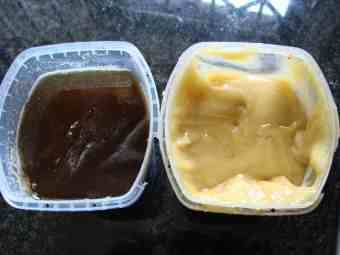
Why does honey crystallise is a question that fascinates many, and what is the difference really?
Corn and beans
Corn and beans provides balanced amino acids from our food; this quick succotash recipe is one of my favourites.
Traditionally succotash is made with limas, but how to plant broad beans is another option; the growing season is not quite so long.
Corn and beans for dinner has become controversial in an obese world with many food-plans like banting and paleo banning all starches and legumes in an attempt to force ketosis; that means there is no place for either of these foods containing carbohydrate.
However both have a low glycemic index, and pass through the small intestine largely unscathed, forming rather the very important short chain fatty acids in the colon than glucose. The microbes in the large intestine are so valuable that they themselves are now described as another organ supplying essential substances to the body. Kefir benefits include a steady supply of probiotics to the gut.
It is Bernard Preston's belief that it is refined carbohydrate rather than all starches that are the problem. Is there a difference between that in a cola and that in a bean? Read more on this difficult subject at about resistant starch.
However if you are morbidly obese, you will have to eschew all starch for a period, even the good carbohydrates; less than 50g per day. Then the pounds fall off very quickly.
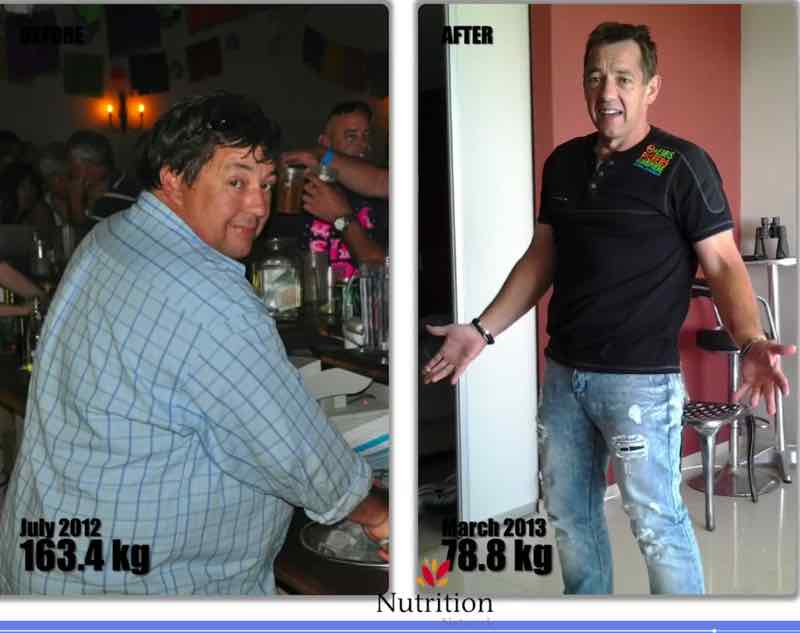
With thanks to the Nutrition Network for this slide.
Another controversial subject that you may be faced with is the phytates bound up in dried corn and beans; it is part of the reason we prefer them young and tender straight from the garden as far as possible. Chickpeas are the exception; you simply cannot grow them in a summer rainfall area; repeated rinsing helps.
Food waste
Food waste is an enormous problem adding substantially to greenhouse gas emissions and contributing to climate change; how does backyard permaculture measure up?
It is staggering that between 30 to 40 percent of all the food produced around the world is never actually eaten. The race to end waste is a whole new initiative that is challenging the planet.
Some of that is because it might be slightly blemished and not considered suitable for greengrocers; other because it is spoiled in some way during harvest and transportation. Yet more is thrown away by supermarkets because it is past its sell by date, and of course that which has gone off in our own kitchens.
There is no easy solution but if we are cognizant of the problem we can each do our bit to save the world from human excesses. Our stale bread goes to the hens, and the worms just love rotten fruit and veggies. The dogs get left over food. That is all part of backyard permaculture.
Add to food waste the plastic that it comes wrapped in and we have double trouble. That stuff is not biodegradable; it is clogging our landfills and oceans.
It is time to wean off plastic before it chokes the very life out of our planet; refuse, reduce, reuse and recycle.
This definition of cutworm might contribute to another conundrum facing the backyard permaculturist who refuses to use toxic sprays in the home. There is a surprising synergy of green living; free range hens will deal very effectively with this and other pests in the garden. But they themselves can be a nuisance; enter the chicken tractor. It is all part of natural pest management.
This nontoxic product from white oil manufacturers can easily be made at home; it is the solution to aphids and white fly on your citrus and roses.
Biodiversity
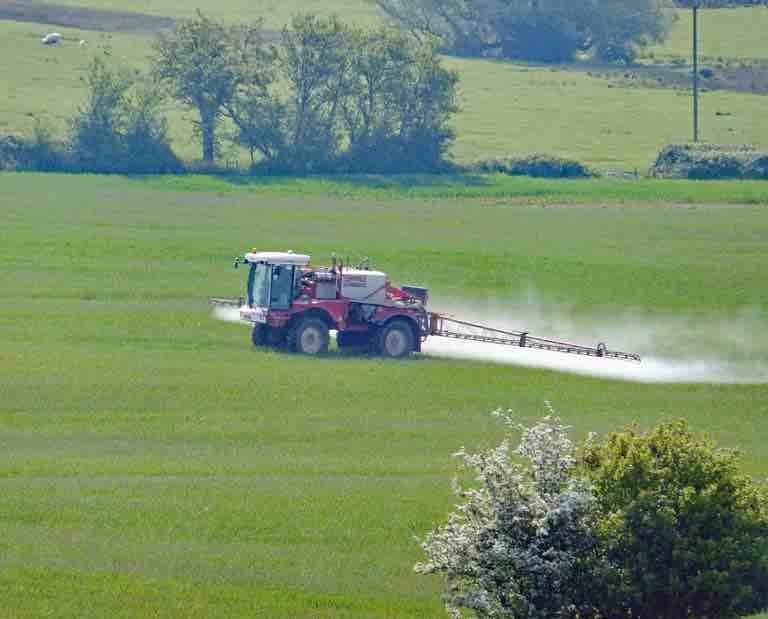
The huge variety of life on the planet, and the natural interactions that occur between creatures and plants, form a fundamental part of our lives on which we are utterly dependent.
Just take honeybees for example; they are disappearing from the planet at an alarming rate. It is not just the honey they produce but the pollination of our flowers. One third of every mouthful we enjoy it directly dependent on pollination by insects.
Backyard permaculture means the human race will not starve. Plant indigenous trees for bees wherever possible; in Southern Africa the Halleria Lucida for example.
One of the problems is that many insecticides used on fruit and nut trees are highly toxic for your bees; think of this white oil instead, especially for citrus and your broad beans.
It is not just honeybees, but bats, frogs, rhinos and a million other creepy crawlies; the decline in biodiversity we are seeing comes largely from human activity, and is now a serious threat to our own survival. In this domain there is much discussion on the place of invasive alien species, many of which bring significant economic and environmental benefits.
We said at the beginning of this page that backyard permaculture is about sustainability; this biodiversity is absolutely central to our own development. It is pivotal when discussing the ten commandments of food security.
Tropical forest destruction, an ever shrinking fishing industry and planting of monocultures all lead to a rise in CO2 to previously unprecedented levels and melting of the polar ice; they speak of the destruction of our own environment and future as a specie, due almost entirely to our own activity.
Spraying poisons on our food is at the very heart of modern agriculture; whether it is weedicides or even more toxic Roundup that it absorbed into the very plants we eat, there is absolutely no doubt that they cause many of the tumours that we suffer from. We and the planet are dying.
Weaning off plastic would be a great start to saving our biodiversity.
Bee pollen
The powerful insecticides used by modern agriculture are known to have many powerful detrimental effects on humans too. Researchers have found significant improvements in the oxidative stress parameters associated with the biocides that we are exposed to on a daily basis with the use of bee pollen[2].
The pollen has been extracted from commercial honey since it promotes crystallisation, not popular with many consumers; they like it runny.
Natural honey and even more so the comb is rich in this pollen that is only accessible to those who practise some form of backyard permaculture; or who frequent farmers' markets asking probing questions about how the food is produced.
Bernard Preston
Bernard Preston is a semi-retired DC with a passion for wellness and ensuring we leave a legacy for our grandchildren that we can be proud of; backyard permaculture is for him what each of us can and should do. It can only begin as each of us starts to take responsibility for our own lives. One of the greatest mistakes is to think you can do so little, so you do nothing.
He is a writer of note, having published six books, and working on the seventh.
Backyard permaculture is just one of his many hobby horses. Soaring in gliders, keeping bees, playing chess and wood-turning are other interests.
- Rainwater harvesting model.
- Meet Bernard Preston DC.
- Baptiso, to immerse is one of Bernard Preston's most profound stories of soaring at 11,000 feet.
When browsing use right click and "Open Link in New Tab" or you may get a bad gateway signal.
Did you find this page interesting? How about forwarding it to a friendly book or food junkie? Better still, a social media tick would help.
- Bernard Preston homepage
- Permaculture
Address:
56 Groenekloof Rd,
Hilton, KZN
South Africa
Website:
https://www.bernard-preston.com